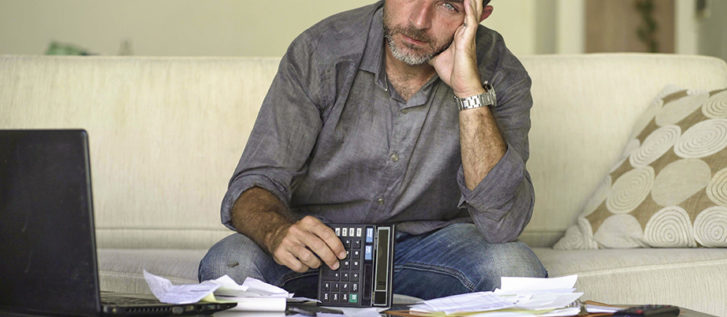
Exploring careers in construction
Construction is a huge industry that spans everything from architecture and house building...read more
Oxford University project tracking the mental health of families during the pandemic finds increased stress reported by working dads and mums in face of latest lockdown

The latest lockdown has seen a new uptick in stress and anxiety among parents. Covid restrictions introduced since November have tested the mental health of working dads.
The Oxford University led Covid-19 Supporting Parents, Adolescents, and Children in Epidemics (Co-SPACE) study uses data from over 6000 UK parents. Participating parents and carers recently reported an increase in symptoms of stress, anxiety, and depression. Symptoms included difficulty relaxing, being easily upset or agitated, feeling hopeless, and lacking interest and pleasure, feeling fearful and worried, as well as being more irritable, over-reactive and impatient. This mirrors parent and carer reports of high levels of stress and depression between April and July last year, which were followed by lower levels of these difficulties between July and September.
Cathy Creswell, Professor of Clinical Developmental Psychology at the University of Oxford and co-lead of the study said: “These findings build on others that suggested that parents were particularly vulnerable to distress during lockdown. Our data highlights the particular strains felt by parents during lockdown when many feel that they have been spread too thin by the demands of meeting their children’s needs during the pandemic, along with home-schooling and work commitments.
“We are particularly concerned about the level of strain felt by parents in low income families, those in single parent families, and those supporting children with special educational needs.”
The data show that parents and carers from certain households have been particularly vulnerable to elevated mental health symptoms. Higher levels of stress, depression, and anxiety were reported by parents from single adult homes and lower income families, as well as those who have children with special education needs and/or neurodevelopmental differences.
Parents who had young children (10 or younger) reported particularly high stress during the first lockdown. Around a third of them (36%) were substantially worried about their children’s behaviour at that time.
In contrast, a quarter (28%) of parents or carers who had older children only (11 or older) were worried about their children’s behaviour during the first lockdown.However, nearly half (45%) of this group were worrying about their children’s future.
Leticea Holland, a parent from the Co-SPACE study, said: “I think UK leaders should have access to this data to see what is going on with the mental health of families and how they are being affected by Covid-19 with increased levels of stress, depression and anxiety. We need something to look forward to. I am also worried that the next three months will show a sharper increase in anxiety and stress where parents are having to do more teaching at home.”
More than 12,500 parents have now taken part in the Co-SPACE survey led by experts at the University of Oxford. The research is tracking children and young people’s mental health throughout the Covid-19 crisis. Survey results are helping researchers identify what protects children and young people from deteriorating mental health, over time, and at particular stress points, and how this may vary according to child and family characteristics. This will help to identify what advice, support and help parents would find most useful. Crucially, the study is continuing to collect data in order to determine how these needs change as the pandemic progresses.

CV expert Emma Alkirwi gives some advice if you are on furlough and need to top up your earnings. read more

The Government has announced a tapering of its furlough scheme for employed workers, and an extension of the Self-Employment Income Support Scheme... read more

Dads money worries during COVID-19
A new piece of research reveals that men, and in particular dads, are most likely to struggle with their mental health at the moment due to money... read more

A Facebook live by Peninsula UK last week addressed some of the questions employers and employees have about returning to work as lockdown is eased. read more